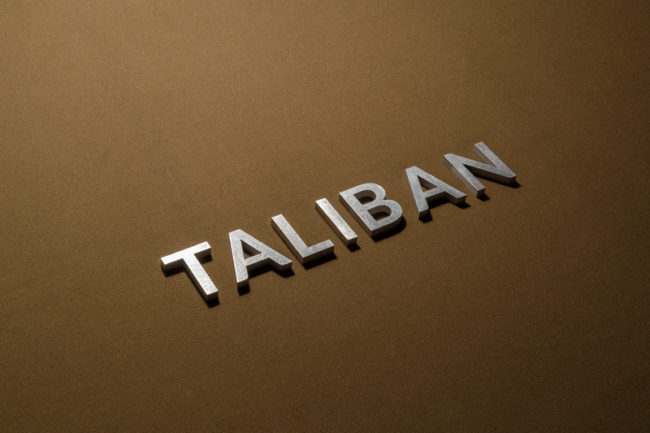
“We will not forgive, we will not forget, we will hunt you down and make you pay”, swore President Joe Biden in an emotional reaction to the expected but still deeply shocking suicide bombings outside Kabul airport that killed 13 American troops and at least 60 Afghans.
These are fighting words but he is making no change to his planned withdrawal, lock stock and barrel, of US and allied military and other official presence by the end of Tuesday next week from Afghanistan.
Suddenly, the White House, Pentagon and State Department intend to place extraordinary trust in the Taliban, the sworn terrorist enemy of the US and its allies for 20 years.
They are ready to risk leaving hundreds of American and Western people behind and thousands of Afghans who worked with them against the Taliban.
With just five days left for the total Western withdrawal, Kabul airport has become an especially fortified fortress to stop terrorists from entering through any of its gates.
The fortifications also mean that Americans and other persons eligible for evacuation will find it much harder to enter the airport’s inner precinct and the pace of clearance will be very slow.
This raises the credible possibility that many eligible persons will be left behind and may be kidnapped and held hostage or captured and killed by terrorists. Currently, there are nearly two dozen mostly uncontrollable Islamic jihadist groups sheltered in Afghanistan. All need money and any one of them could turn to hostage taking for Western ransom.
Who the terrorists are and will be has become a burning question. The airport bombings were claimed by the Islamic State ousted from its short-lived Caliphate between 2014 and 2018 in Syria and Iraq, which the US successfully destroyed.
General Kenneth McKenzie, head of America’s Central Command, blamed the Kabul bombings on the Islamic State Khorasan Province (ISKP), an Afghanistan branch of IS. He foresees more attacks so the airport is being sealed off thoroughly.
The White House seems to expect that the Taliban will facilitate the departure of eligible persons left behind to avoid offending the US because it craves political acceptance by the international community and needs funds from the West.
This expectation rests partly on the notion that ISKP is as much an enemy of the Taliban as of the US. The thinking goes that it will conduct attacks against the Taliban after foreign troops leave to stop formation of a stable central government in Kabul. That would make the Taliban more amenable to playing nice with Washington.
But this may be a misunderstanding of the situation. The ISKP has a longer term vision of opening opportunities to establish a new large Islamic dominion ruled by very extremist Sunni theocrats.
The term “Khorasan Province” in its name refers to an eponymous domain dating from the sixth century and later that included parts of modern day Iran, Central Asia, Afghanistan and the Indian sub-continent.
Biden and the Pentagon should be cautious about their expectation that the Taliban and ISKP are deadly enemies and likely to go at each other’s throats. That is far from certain in the shifting sands of tribal and Islamic politics.
It is true that the Taliban do not have expansionist ambitions going beyond the current territory of Afghanistan. In contrast, the Islamic State Khorasan Province is conceived as an expansionist movement designed to bring all the world’s 1.5 billion Muslims under theocratic rule in a glorious Caliphate ordained by their fundamentalist concept of God’s will.
Ideologically, ISKP is more extreme than the Taliban although both are heavily influenced by militant Islamic teachings evangelized by Saudi Arabia’s Wahhabi sect of Islam. Those are severe teachings that adhere to the ultra-conservative Hanbali school of Islamic thought, which grew in the harsh medieval environment of deserts.
The Taliban in Afghanistan and Pakistan are slightly less extremists and are influenced by the Hanafi school of Islam which spread in the greener pastures and richer realms of West and Central Asia.
Both ISKP and Taliban have similar theological roots and superstitions. The Taliban may avoid ISKP-led harassment and insurgency if they agree to discreetly give safe haven to it on Afghan territory.
Since a new US-led invasion is almost definitely off the table, a Taliban-ISKP modus vivendi would allow political space for the Taliban to reach agreements with various Afghan tribes and ethnic groups and, thus, establish stable rule over all of Afghanistan.
For that to be sustainable, the Taliban needs a cold peace with the US which can only happen if all eligible persons are allowed safe passage out of Afghanistan as desired by the White House and its allies.
The Taliban may even be able to extract humanitarian and other financial aid from Washington and the West if it does not oppress women by refusing them education, employment and other human rights. It must also abstain from medieval practices like stoning women accused of adultery and cutting of the hands of thieves.
This kind of flexibility may appear on the table as the Taliban struggle to stand on their feet as the undisputed rulers of Afghanistan. But their hearts are still entrenched in medieval Islam and their doctrinal distance from ISKP is narrower than it might seem to Western policy makers.
Photo 227770791 © Zzz1b | Dreamstime.com
















